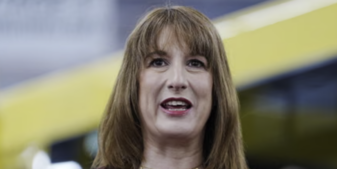A recent poll has revealed the public want to hike gambling taxes to strengthen the fight against child poverty.
A survey by Survation for the campaign group 38 Degrees was shared with the Mirror, which showed 64% of people support the idea put forward by former Prime Minister Gordon Brown last month.
Just 14% of the 8,000 surveyed said they would oppose the increased levy on online casinos to help reduce the number of children in poverty.
Matthew McGregor, CEO of 38 Degrees, said: “The public have told us time and time again that they want to see big gambling companies who are raking in huge profits pay their fair share.
“Now is the chance to make sure that they are finally forced to pay up.”
Brown believes raising taxes on the ‘undertaxed’ gambling industry is ‘by far the most cost-effective way’ for Chancellor Rachel Reeves to prevent a social crisis.
The 74-year-old argues it could generate an extra £3.2 billion for the economy, used to scrap the two-child benefit cap which restricts child tax credit and universal credit to the first two children in most households.
Reeves’ autumn budget will take place on November 26, where she is widely expected to harmonise online gambling tax into a single rate.
Currently, UK betting sites pay tax in two categories – a general duty that covers racing and pool betting levied at 15% of gross profits – and a remote gaming duty that covers casino games taxed at 21%.
The British Horseracing Authority fear this move could cost the sport as much as £160 million, putting its future at risk, threatening thousands of jobs as well as rural communities and vital funding for horse welfare.
On September 10, all scheduled horse racing in Britain has been cancelled in a strike against the proposed changes – with meetings abandoned at Uttoxeter, Lingfield, Kempton and Carlisle which is expected to result in a £700,000 loss to the industry.
In July, a YouGov survey commissioned by the Betting and Gaming Council (BGC) revealed 28% of UK gamblers could head for the black market if tax harmonisation is introduced.
Offshore sportsbooks may become increasingly popular with bettors as regulated operators would suffer. Racing would become the most expensive product a bookmaker can carry, having to make prices less competitive in order to maintain profit margins.

